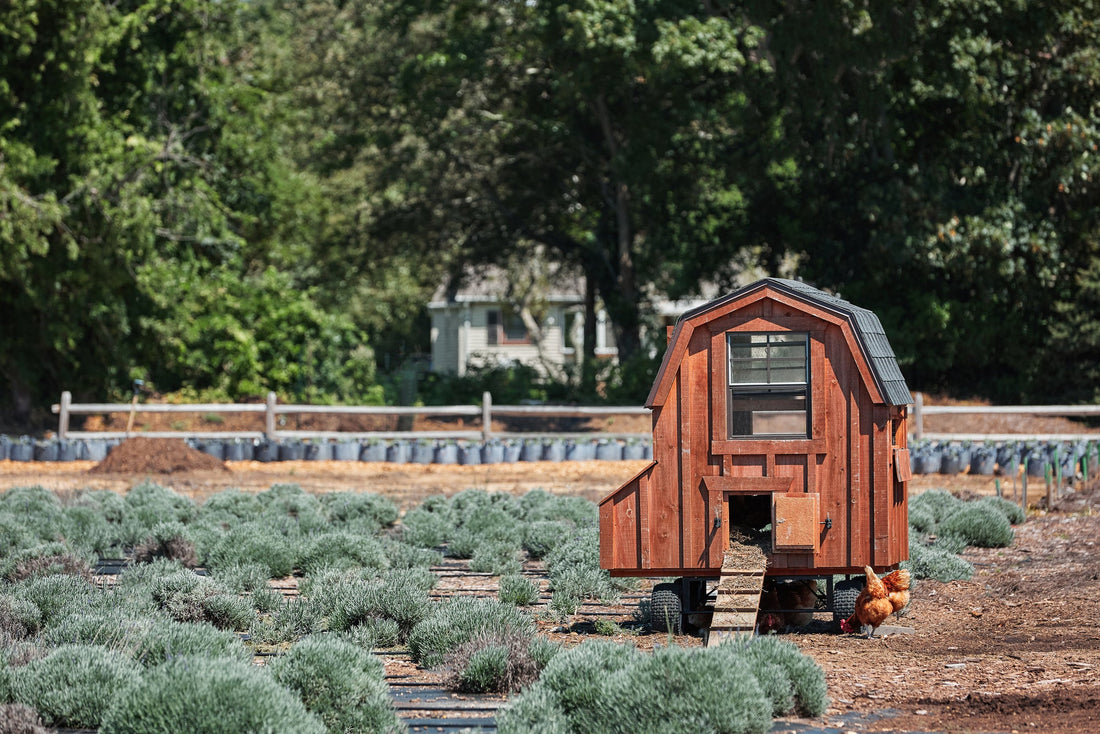Raising chickens in your backyard is not just about ensuring they're fed; it's about creating an environment where they can thrive, be happy, and healthy. This comprehensive guide will walk you through the essentials of setting up a coop and run that will be the envy of backyard poultry enthusiasts everywhere. From the foundations of coop design to the intricacies of daily chicken care, we'll ensure your feathery friends lead the cluckin' good life they deserve.
The Foundation: Choosing the Right Location and Design for Your Coop
The journey to a happy and healthy chicken home begins with selecting the perfect spot and design for your coop. Ideally, the location should provide adequate sunlight, protection from the elements, and easy access for you to manage. Consider the coop's orientation; an east-facing door can offer sunlight in the morning and shade in the afternoon. Design-wise, ventilation is key. A well-ventilated coop ensures fresh air circulation, reducing the risk of respiratory issues in chickens. Moreover, the coop should be predator-proof and insulated for weather extremes, ensuring your backyard poultry remain safe and comfortable year-round.
Room to Roam: Setting Up an Inviting Run
A spacious run is crucial for the well-being of your chickens, allowing them ample room to forage, exercise, and indulge in their natural behaviors. The run should be securely fenced to keep predators out and chickens in. Consider covering the top to prevent aerial attacks and provide shade. Inside the run, include features that promote activity and enrichment, such as perches, dust bathing areas, and foraging spots. These elements encourage natural behaviors, keeping your chickens engaged and happy.
Coop Comforts: Bedding and Nesting
Inside the coop, bedding and nesting areas are essential for comfort and hygiene. Pine shavings or straw make excellent bedding materials, absorbing moisture and making clean-up easier. Change bedding regularly to maintain a clean environment. For nesting, provide boxes lined with soft materials where hens can lay their eggs in peace. One box for every three to four hens is a good rule of thumb. These cozy, private spaces are critical for a hen's well-being and productivity.
The Menu: Nutrition and Water
Proper nutrition is the cornerstone of chicken health. A balanced diet of quality commercial feed supplemented with grains, vegetables, and occasional treats will keep your chickens clucking with joy. Grit should also be available to aid in digestion. Fresh, clean water must be accessible at all times, with containers cleaned regularly to prevent algae and bacteria growth. Remember, a well-fed chicken is a happy chicken.
Health and Hygiene: Keeping Your Flock Fit
Regular health checks are vital to catch and address issues early. Look out for signs of illness or distress, such as lethargy, abnormal droppings, or changes in eating habits. Parasite control is also crucial; treat your chickens and their living environment to prevent infestations. Coop cleanliness plays a significant role in preventing diseases. A clean, dry, and well-ventilated coop is less likely to harbor pathogens that can harm your flock.
Pecking Order: Managing Flock Dynamics
Understanding and managing the social hierarchy within your flock is essential for maintaining harmony. Introduce new chickens gradually to minimize stress and aggression. Provide enough space, feeders, and waterers to reduce competition and bullying. Observing your flock's interactions can help you identify and address any social issues early, ensuring a peaceful coexistence.
Seasonal Strategies: Adapting to Change
As seasons change, so do the needs of your chickens. In hot weather, ensure ample shade and ventilation to prevent overheating. Frozen treats and additional water sources can help keep them cool. In cold weather, reinforce the coop's insulation and provide a frost-proof water source. Avoid using heaters due to fire risks; instead, focus on natural insulation methods and proper coop construction to keep your flock warm.
Enrichment Essentials: Keeping Chickens Entertained
Bored chickens can develop negative behaviors such as feather pecking or aggression. To keep your flock engaged, incorporate various enrichment activities. Hanging vegetables, introducing new perches, or even providing a simple pile of leaves can stimulate exploration and play. Regular changes to the run's layout or introducing new objects can provide mental stimulation and reduce boredom.
Community and Care: The Human Touch
Finally, the relationship you build with your chickens plays a crucial role in their well-being. Regular, gentle handling helps desensitize them to human interaction, making it easier to perform health checks and manage your flock. Spend time in their environment, observing and interacting with them. This not only enriches their lives but also deepens your understanding and connection with your feathery friends.
By following these guidelines, you can create a cluckin' good life for your backyard poultry, filled with joy, health, and productivity. Remember, a happy chicken is a healthy chicken, and with the right care and environment, your coop and run can become a haven for your feathered companions.

